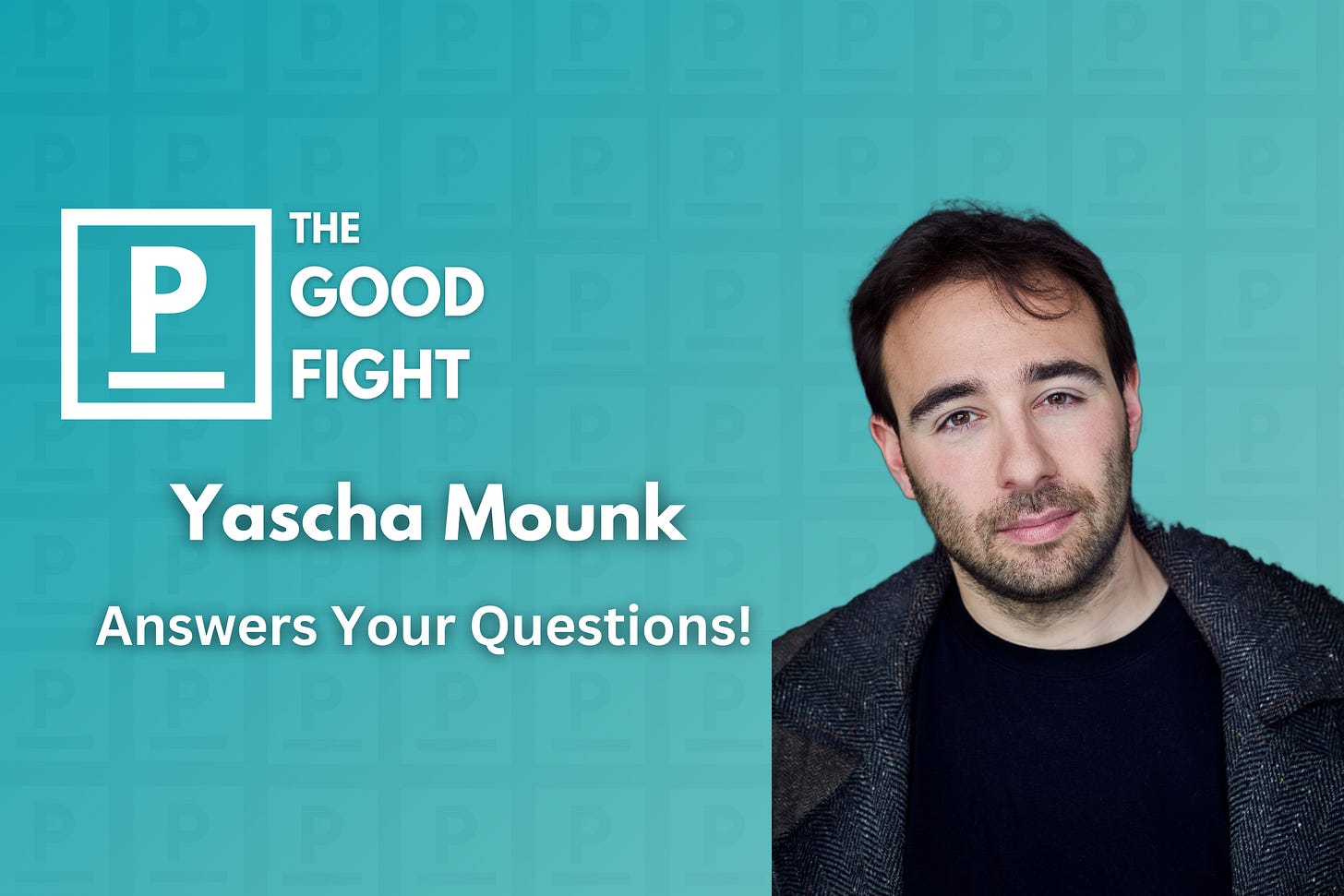Thanks for reading! The best way to make sure that you don’t miss any of these conversations is to subscribe to The Good Fight on your favorite podcast app.
If you are already a paying subscriber to Persuasion or Yascha Mounk’s Substack, this will give you ad-free access to the full conversation, plus all full episodes and bonus episodes we have in the works! If you aren’t, you can set up the free, limited version of the feed—or, better still, support the podcast by becoming a subscriber today!
And if you are having a problem setting up the full podcast feed on a third-party app, please email our podcast team at leonora.barclay@persuasion.community
In this week’s conversation, Persuasion editor-in-chief Yascha Mounk was joined by listeners of The Good Fight for a “mailbag” episode, speaking about everything from domestic and global politics to AI.
This transcript has been condensed and lightly edited for clarity.
Susan: I've heard of many people being scared since Trump's second term. Larry Diamond wrote an excellent article about defending democracy in America. I just wanted to say that we need to resist pessimism—standing up to a bully is tough, but we have to do it. What are your thoughts on Diamond’s ideas?
Yascha: Larry Diamond is one of the most important scholars about democracy. And I think both his previous article for American Purpose, in which he laid out why we are now in a constitutional crisis and this article, making a set of arguments about what we should do about it, were really informative and convincing. He has some good advice about what every person can do to stand up to any attempt at no-return takeover.
Now, I do think more broadly that there is a real gap in the literature about this. We didn't study democratic backsliding in consolidated democracies very much until about 10 years ago. Places like the United States and France and Germany were supposed to be exempt from any of these dangers. And now there's been a flurry of activity of people studying this for the last 10 years. But I'm really struck by how few answers we actually still have. We don't really have a convincing account of what leads to the rise of populism that can get democratic institutions into trouble. I don't think that we have a very convincing account of what the opposition did right in places where they were able to remove these kinds of politicians at the ballot box or what they did wrong in places where they didn't.
It's easy to say that in places where opponents of illiberal populism won, they had a convincing message and were united, and in places where they lost they didn't have a convincing message and weren't united. But that's not a particularly helpful piece of advice. And it's very easy to look at the success story in Poland or what Ekrem İmamoğlu did—the mayor of Istanbul who's now been imprisoned—or at what the Brazilian opposition did and say, oh, we'll just do whatever they're doing. But many of the people who ended up losing did some of those same things. I would encourage all listeners to this to go and read Larry's article. I think it's a very smart summary of the kinds of things that we might be able to do. But I don't actually think that we have the answers, or that we really know what to do in any substantive way.
In the rest of this week’s conversation, Yascha answers questions about Donald Trump considering a third term, a cautionary tale for the center left, and what people get wrong about AI. This part of the conversation is reserved for paying subscribers…













